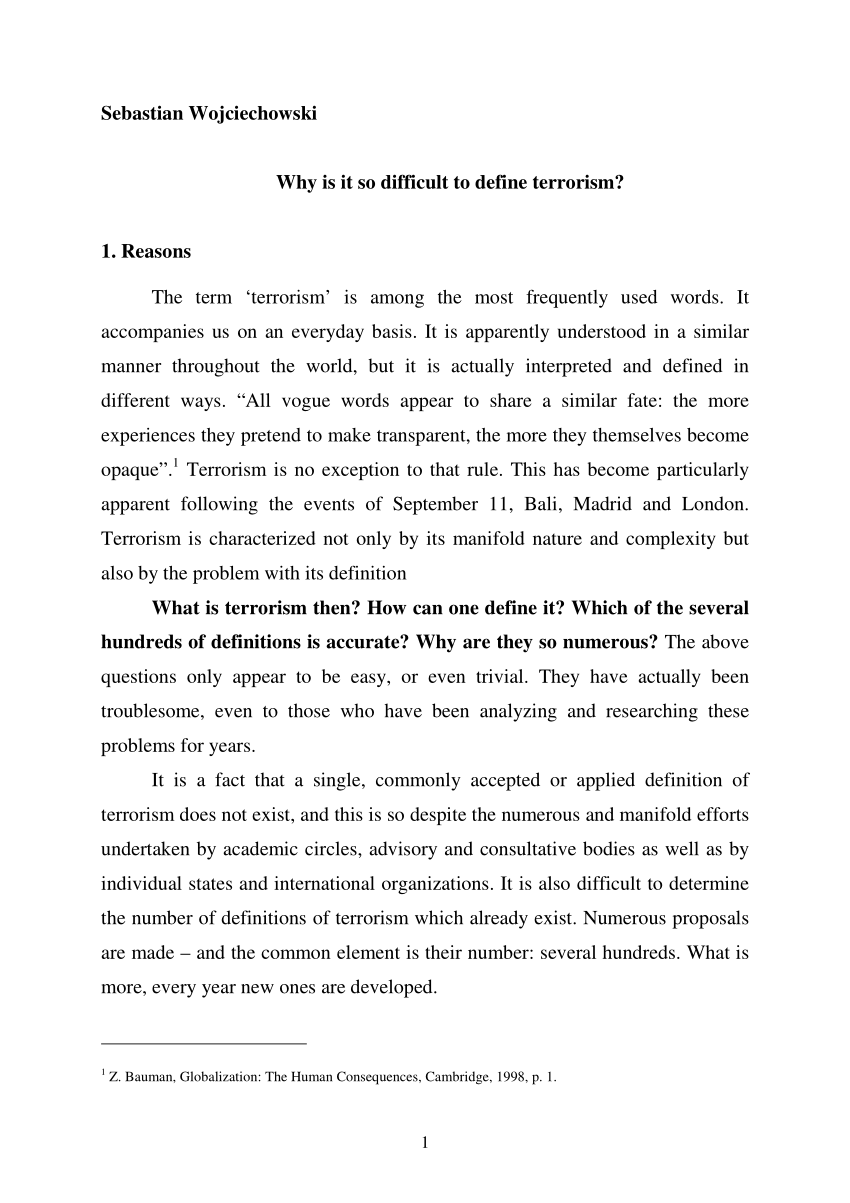Q.3 Why is it difficult to define terrorism? Elaborate upon the following: (a) Feminization of terrorism (b) Criminalization of terrorism (c) Commercialization of terrorism (d) State-terrorism. 2019

Defining terrorism is difficult because it is a highly contested term and its meaning varies depending on the context and perspective of the people involved. However, some common elements of terrorism include the use of violence or intimidation to achieve political, ideological, or religious goals, and the deliberate targeting of civilians or non-combatants.
(a) Feminization of terrorism refers to the increasing participation of women in terrorist activities. Women have traditionally been seen as passive victims of terrorism, but recent years have seen a rise in the number of women involved in terrorist groups, both as active participants and as supporters. This trend challenges traditional gender roles and highlights the need for a gender-sensitive approach to counter-terrorism.
(b) Criminalization of terrorism refers to the practice of treating terrorism as a criminal act rather than a military or political one. This approach involves using law enforcement and criminal justice measures to investigate and prosecute terrorist acts, rather than military force or political negotiations. This approach can be effective in disrupting terrorist networks and holding individuals accountable for their actions, but it also raises concerns about civil liberties and due process.
(c) Commercialization of terrorism refers to the use of terrorism as a business or revenue-generating activity. This can involve extortion, kidnapping, smuggling, or other criminal activities that are used to finance terrorist operations. The commercialization of terrorism blurs the line between political violence and criminal activity, and it poses a challenge for law enforcement and counter-terrorism efforts.
(d) State-terrorism refers to the use of violence or intimidation by a state or its agents to achieve political goals. This can include torture, extrajudicial killings, and other human rights abuses that are used to suppress dissent or opposition. State-terrorism is often justified as a necessary measure to maintain national security or protect against perceived threats, but it can also undermine the legitimacy and stability of the state.
Overall, the difficulty of defining terrorism highlights the complexity of the issue and the need for a nuanced and multi-faceted approach to addressing it. Counter-terrorism efforts must take into account the various forms and manifestations of terrorism, while also protecting human rights and upholding the rule of law.